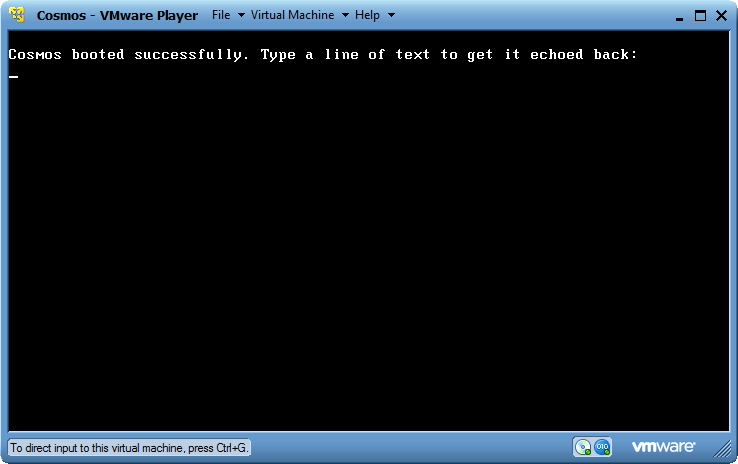
This is an update to an earlier article which discussed an older version of Cosmos. This article is specific to the Milestone 5 released in August 2010.
Introducing CosmosCosmos (C# Open Source Managed Operating System) is an operating system development kit which uses Visual Studio as its development environment. Despite C# in the name any .NET based language can be used including VB.NET, Fortran, Delphi Prism, IronPython, F# and more. Cosmos itself and the kernel routines are primarily written in C#, and thus the Cosmos name. Besides that, NOSMOS (.NET Open Source Managed Operating System) sounds stupid. Cosmos is not an operating system in the traditional sense, but instead it is an "Operating System Kit", or as I like to say "Operating System Legos". Cosmos lets you create operating systems just as Visual Studio and C# normally let you create applications. Most users can write and boot their own operating system in just a few minutes, all using Visual Studio. Milestone 5 includes new features such as an integrated project type in Visual Studio, and an integrated debugger. You can debug your operating system directly from Visual Studio using breakpoints. Cosmos is available in two distributions, the developer kit (dev kit), and the user kit. The dev kit is designed for users who want to work on Cosmos itself. The user kit is designed for those who are interested in building their own operating system and doing some Cosmos work. The dev kit might be thought of as the Cosmos SDK. Most users should start off with the user kit as it is not so overwhelming like the dev kit. This article focuses on the user kit. Writing your first Operating SystemCreate a new project as you would any C# project. Select Cosmos as the project type.Read more: Codeproject



0 comments:
Post a Comment